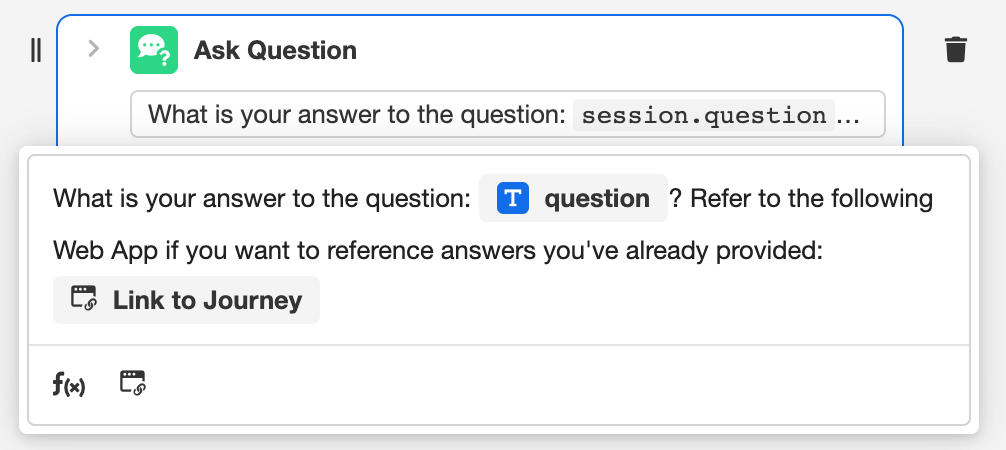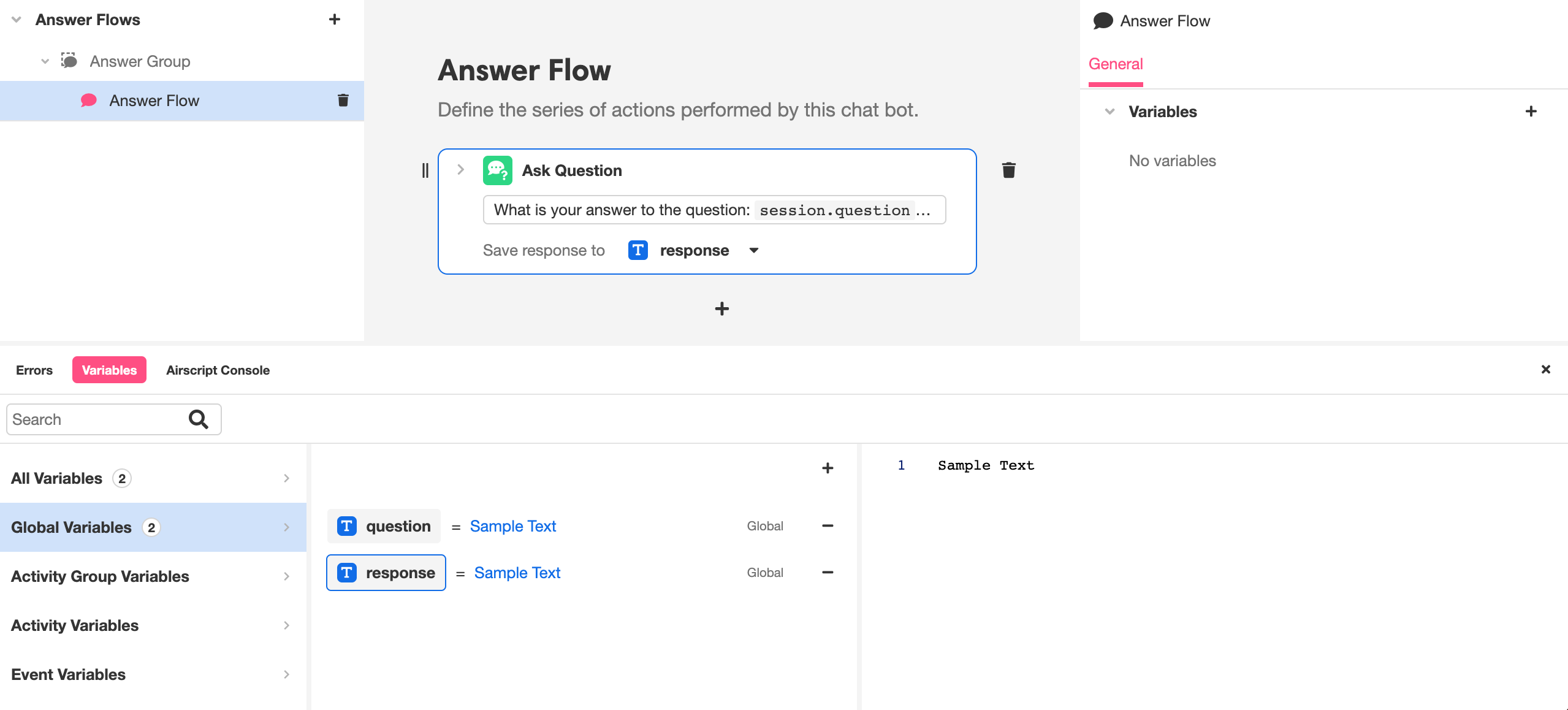
The Ask A Question Action is used to ask questions as part of a Conversation Chat Bot. It will send users a message and then wait for a response before proceeding, and the user's response can be bound to a variable for reference downstream.
Enterprise FeatureAccessing Conversation Actions requires an ENTERPRISE license. If you would like to enable this feature for your Airkit Organization, please contact your Airkit representative or contact [email protected].
Use Cases
The Ask A Question Action is capable of sending messages and then receiving messages in response. This makes it ideal for:
- Asking users for identifying information
- Asking users how they want to proceed
- Confirming orders or appointments
Properties
Question
Expects type text.
This is the message that the Ask A Question Action will send to to the user before waiting for a reply.
Adding Variables and Custom Expressions
Clicking on the Airscript icon ( ) to the bottom left of the expanded text box will insert an Airscript expression into the question. Edit inserted Airscript expressions by clicking on them and selecting either the Variable or the Custom Expression Tab.
) to the bottom left of the expanded text box will insert an Airscript expression into the question. Edit inserted Airscript expressions by clicking on them and selecting either the Variable or the Custom Expression Tab.
- Variable Tab - allows the selection a variable to insert into the text.
- Custom Expression Tab - provides an expression editor capable of parsing custom Airscript expressions.
Adding Links to Journeys
Clicking on the link icon to the direct right of the Airscript icon will insert a Journey Link directly into the question. Journey Links direct users back to the web portion of their Session. For a more detailed discussion of how this works, see Linking to Sessions.
Save response to
Expects an established variable of the appropriate scope.
This is the variable that the users response will be bound to for future reference.
Example
In this example, the Ask A Question Answer Action will send its initial message message dynamically depending on the value of the Global Variable question and the URL of the associated Session:

The response the user gives will then be bound to the Global Variable response, which was created in the Variable Tree beforehand:
